Resilience – Hard-Won Wisdom for Living a Better Life by Eric Greitens
$19.00
Product Include:
File size:
Resilience – Hard-Won Wisdom for Living a Better Life by Eric Greitens
**More information:
Get Resilience – Hard-Won Wisdom for Living a Better Life by Eric Greitens at Salaedu.com
Description
“What I have loved and admired most about Eric Greitens is that he sees the potential in all of us, and compels us to reach it. In Resilience, Greitens draws upon wisdom that is both ancient and powerfully relevant. Read it to win your own battles, and see why Eric Greitens is one of the great Americans of our time.” – J.J. Abrams, Producer/Director/Writer
From the Inside Flap
We do not “bounce back” from injury or pain. We have to move through it. Our culture is obsessed with happiness—where to find it, how to achieve it—but happiness should not be a goal but a byproduct of our actions. Resilience is what makes us strong, keeps us going, and improves our character along the way.
Best-selling author, Navy SEAL, and humanitarian Eric Greitens offers a masterpiece of warrior wisdom that will change your life.
In 2012, Eric Greitens unexpectedly heard from a former SEAL comrade, a brother-in-arms he hadn’t seen in a decade. Zach Walker had been one of the toughest of the tough. But ever since he returned home from war to his young family in a small logging town, he’d been struggling. Without a sense of purpose, plagued by PTSD, and masking his pain with heavy drinking, he needed help. Zach and Eric started writing and talking nearly every day, as Eric set down his thoughts on what it takes to build resilience in our lives.
Eric’s letters—drawing on both his own experience and wisdom from ancient and modern thinkers—are now gathered and edited into this timeless guidebook. Resilience explains how we can build purpose, confront pain, practice compassion, develop a vocation, find a mentor, create happiness, and much more. Eric’s lessons are deep yet practical, and his advice leads to clear solutions.
We all face pain, difficulty, and doubt. But we also have the tools to take control of our lives. Resilience is an inspiring meditation for the warrior in each of us.
From the Back Cover
“I love this book. It is tough, smart, and compassionate. I know no one else who could have written a book like this. Eric Greitens has the real-life experience, the courage, and the heart to give all of us the kind of advice that can be life-changing. I will read, reread, and send it to everyone I know. You should too!” — Martha Raddatz, chief global affairs correspondent, ABC News
“What I have loved and admired most about Eric Greitens is that he sees the potential in all of us and compels us to reach it. In Resilience, Greitens draws upon wisdom that is both ancient and powerfully relevant. Read it to win your own battles, and see why Eric Greitens is one of the great Americans of our time.” — J. J. Abrams, producer/director/writer
About the Author
Eric Greitens was born and raised in Missouri. A Navy SEAL, Rhodes Scholar, boxing champion, and humanitarian leader, Eric earned his Ph.D. from Oxford University. He did research and documentary photography work with children and families in Rwanda, Albania, Mexico, India, Croatia, Bolivia, and Cambodia.
The founder of The Mission Continues and the author of the New York Times best-seller The Heart and the Fist, Eric was named by Time magazine as one of the 100 most influential people. Fortune magazine named him one of the 50 greatest leaders in the world. Eric lives in Missouri with his wife, Sheena and son, Joshua.
To learn more about Eric and his work, please visit www.ericgreitens.com.
Excerpt. © Reprinted by permission. All rights reserved.
LETTER 1
Your Frontline
Walker,
You told me you cleared your house last week. You got up around 0300, grabbed a pistol, and went from room to room, closet to closet, crevice to crevice, checking . . . for what, you weren’t sure.
Nobody was in the house, of course.
You’ve been doing that a couple of times a month. You’ve been waking up in puddles of sweat. It would be tempting—very tempting—to imagine that you’re just having bad dreams. It would be even more tempting to slap a medical diagnosis on what’s going on and to let some doctor pump you full of pills.
But you are my friend, and it’s not some nightmare memory of war that’s really the problem, and you know it.
The problems at night may have a little to do with the past, but they have a lot more to do with what you are choosing to do in the present.
You’re home now, and for the first time in your life, you don’t know what you’re aiming at. You tried the concrete business. It went well for a while and then blew up.
Before, you’d been a Navy SEAL. You were one of the world’s elite commandos. You rolled out of bed every day with a sense of purpose, a meaningful mission in front of you, and a team around you. You could walk with your head held high. Now you’ve been diagnosed with a disorder, you’re unemployed, you’re surrounded by friends like the marine who is talking about “painting the ceiling with his brains,” and all the while you’re passing the weekends with your cooler full of beer. You didn’t call me until you’d been arrested, and now you’re looking at the prospect of having your kids come visit you in jail.
So what do you do?
As a Navy SEAL, you understood the word “frontline” to mean the place where you met the enemy.
The frontline was where battles were fought and fates decided. The frontline was a place of fear, struggle, and suffering. It was also a place where victories were won, where friendships of a lifetime were forged in hardship. It was a place where we lived with a sense of purpose.
But “frontline” isn’t just a military term. You have a frontline in your life now. In fact, everyone has a place where they encounter fear, where they struggle, suffer, and face hardship. We all have battles to fight.
And it’s often in those battles that we are most alive: it’s on the frontlines of our lives that we earn wisdom, create joy, forge friendships, discover happiness, find love, and do purposeful work. If you want to win any meaningful kind of victory, you’ll have to fight for it.
We did a lot of hard stuff together. We also had a lot of fun. This’ll be the same. You have a lot more to do than read a letter: you have to raise two children (with a third on the way), find direction in your life, support your family. You have some day-after-day, hard-sweating work in front of you. My hope is that if I put some of these thoughts on paper, they’ll help you on this new frontline.
And before we start, I want you to know that you are one of the best people I’ve ever known. I’m not telling you that to blow smoke or to puff you up if you’re reading this late at night and are feeling down. I’m telling you because I love you, and if somebody has a better heart or a deeper devotion to friends and family than you, I haven’t met him. You inspired me when we were in training, and you’ve motivated me to write down these thoughts. Your wife is lucky to have you as a husband, your kids are lucky to have you as a father, and I am lucky to have you as a friend.
I’m disappointed that you aren’t living as fully as you can. I’m disappointed that all of your gifts—your tough energy, your street-smart, solid intelligence, your kind heart, your vision, your belief in the power of other people—have been lying fallow for too long. The world is a poorer place because you aren’t fully in it.
The world needs what you have to offer. But because you’ve been wrestling with these demons and have been churned and turned and knocked around by your own pain—by the resistance that you’ve put in your own path—we’re all weaker for it. And that, my friend, is bull. You’re capable of more than you’re living right now.
I’m hoping that as we knock these letters back and forth, they’ll help you turn the pain you experience into the strength, wisdom, and joy you deserve.
It’s all about resilience.
Resilience is the virtue that enables people to move through hardship and become better. No one escapes pain, fear, and suffering. Yet from pain can come wisdom, from fear can come courage, from suffering can come strength—if we have the virtue of resilience.
People have known this for thousands of years. But today a lot of this ancient wisdom goes unheeded.
In my work with other veterans who have overcome injuries and loss—the loss of limbs, the loss of comrades, the loss of purpose—I have heard one thing over and over again: their moments of darkness often led, in time, to their days of greatest growth.
You can be tough on civilians, on people who “don’t understand” what you’ve been through. But the battlefield isn’t the only place where people suffer. Hardship hits in a million places. And there are a lot of people, including your neighbors, who have suffered more than any soldier, and they’ve done so with none of your training, with no unit around them, with no hospital to care for them, and sometimes with no community to support them.
And when those people reflect on their suffering, they often uncover a similar truth: that struggle helped them to build deep reservoirs of strength.
Not all growth happens this way. But a great deal of it does come when we put our shoulder into what’s painful. We choose to, or have to, step beyond the margins of our past experience and do something hard and new.
Of course fear does not automatically lead to courage. Injury does not necessarily lead to insight. Hardship will not automatically make us better.
Pain can break us or make us wiser. Suffering can destroy us or make us stronger. Fear can cripple us, or it can make us more courageous.
It is resilience that makes the difference.
When people try to help other people, they often promise that they have “new secrets” based on some revolutionary trick or the “latest scientific research.” It’s true that current science has confirmed centuries-old insights into resilience. But I don’t have any such promises. In fact, the only thing I can promise you is that these letters will be imperfect.
Some of what I’ll share with you are old insights, often from people who lived in another time altogether. I’ll also share a few stories from my own battles and from the great teachers and role models I met along the way. The insights are often old because resilience is a virtue as old as human existence. Since the beginning of recorded history, people have recognized it as essential to human flourishing. For at least three thousand years, people have been thinking and learning about how we become resilient—how we make ourselves, our children, our families, our units, and our communities stronger and wiser as we move through pain and hardship.
A lot of this, then, will strike you as common sense. But that’s the nature of common sense: it’s built from ideas that have stood time’s test. These ideas are accessible to all of us, and they live from one generation to the next.
What worked for us in the SEAL teams, what works for Olympic athletes, what worked for the Greeks two thousand five hundred years ago—much of it is the same stuff, directed at the same human questions. How do you focus your mind, control your stress, and excel under pressure? How do you work through fear and build courage? How do you overcome defeat and rise above obstacles? How do you adapt to adversity?
These are universal questions. Everyone has to answer them. We answer them with practical wisdom, and that wisdom surrounds us. It is embedded in our language, our art, our literature, our philosophy, our history, our religion. But in an age of distraction, we’ve lost touch with practical wisdom. Our wealth of common sense fails to become common practice.
Two thousand five hundred years ago, a soldier-poet wrote this:
Even in our sleep, pain that cannot forget
falls drop by drop upon the heart,
and in our own despite, against our will,
comes wisdom to us by the awful grace of God.
—Aeschylus
Aeschylus was an Athenian soldier who fought at the battle of Marathon. At Marathon, he and his fellow citizens—the elite troops of their day—repelled the greatest foreign invasion that Greece had ever seen. When Aeschylus wrote about pain—the hard life of a soldier, or the anguish of those he leaves behind—he wrote from experience. Listen to these words he put into the mouth of a Greek soldier just returned from ten years of war:
Our beds right up against the enemy walls.
Rain from the sky, dew from the ground soaking us perpetually,
rotting our clothes, filling our hair with vermin.
I could tell you stories of winter so cold it killed the birds in the air.
1 review for Resilience – Hard-Won Wisdom for Living a Better Life by Eric Greitens
Add a review Cancel reply
Related products
HYPNOSIS - NLP Courses
HYPNOSIS - NLP Courses
HYPNOSIS - NLP Courses
Niraj Naik – Renew Your Body & Reprogram Your Reality With SOMA Breathwork
HYPNOSIS - NLP Courses
HYPNOSIS - NLP Courses
HYPNOSIS - NLP Courses

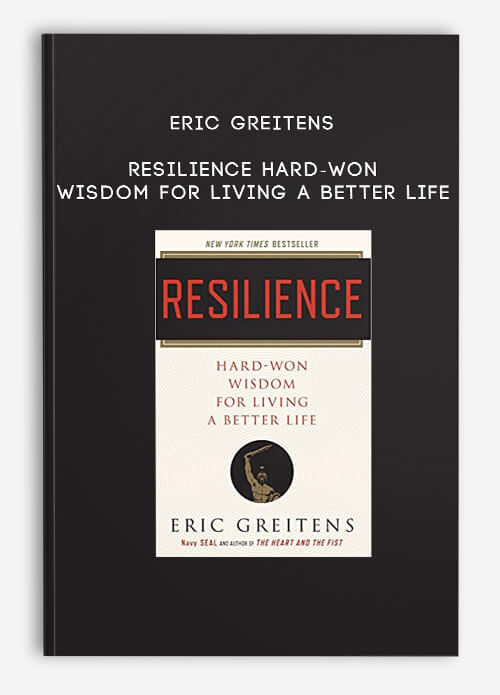
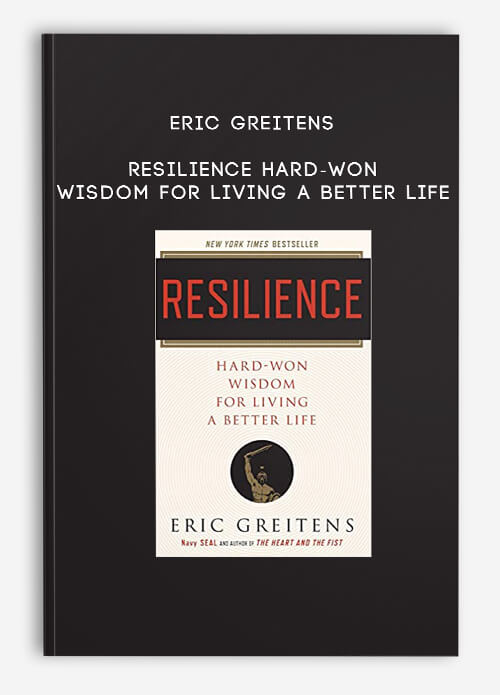
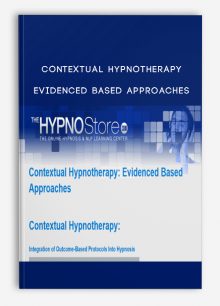
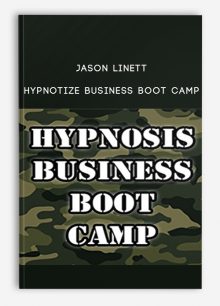
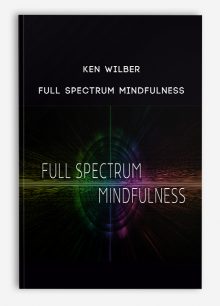
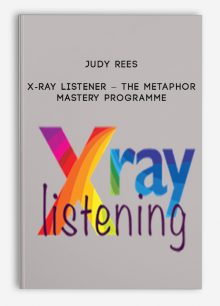

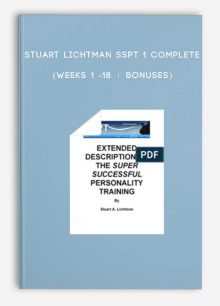
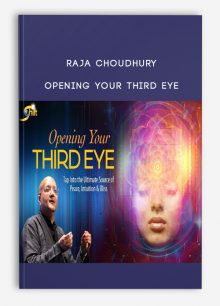
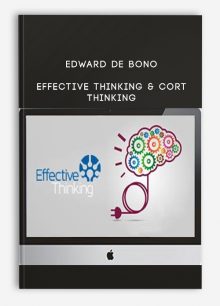
king –
We encourage you to check Content Proof carefully before paying.“Excepted” these contents: “Online coaching, Software, Facebook group, Skype and Email support from Author.”If you have enough money and feel good. We encourage you to buy this product from the original Author to get full other “Excepted” contents from them.Thank you!